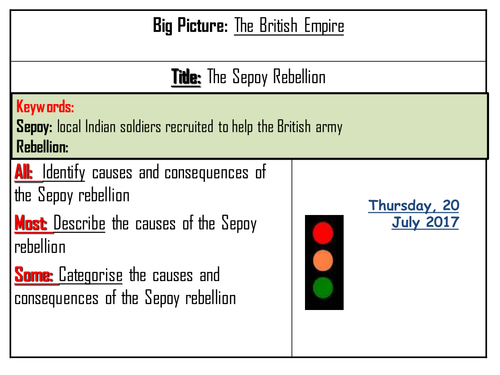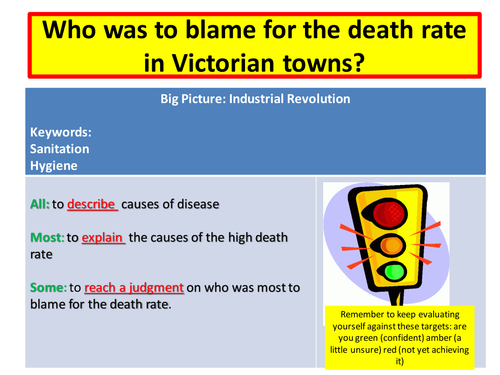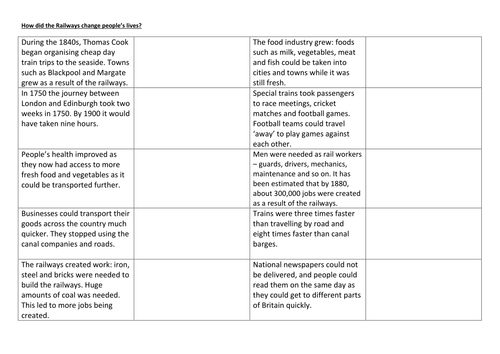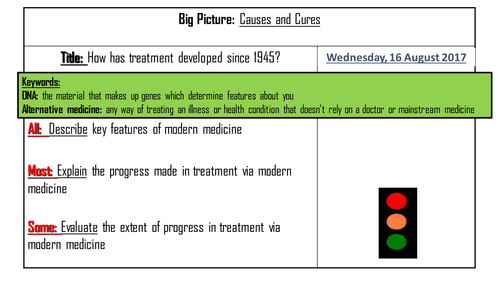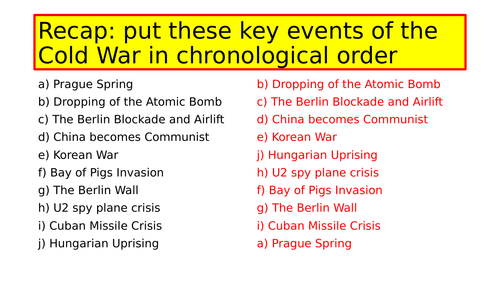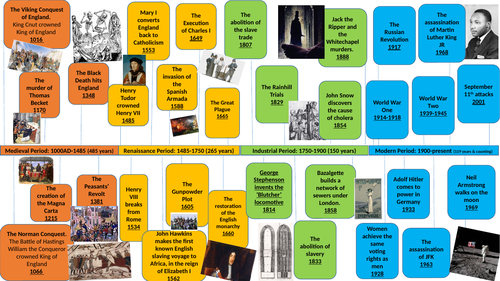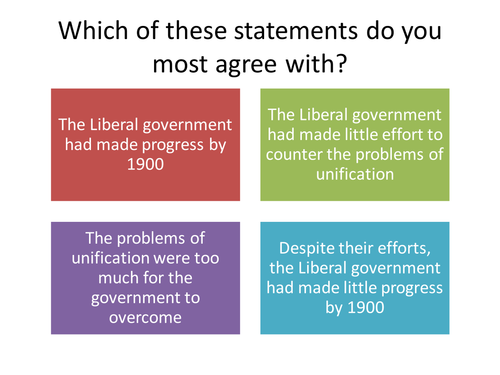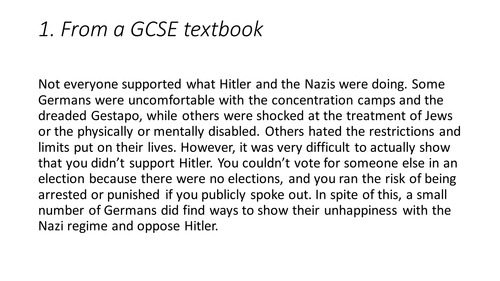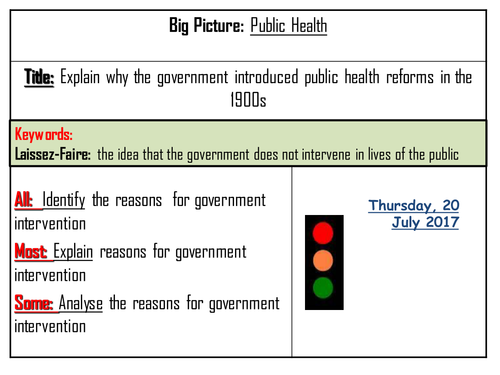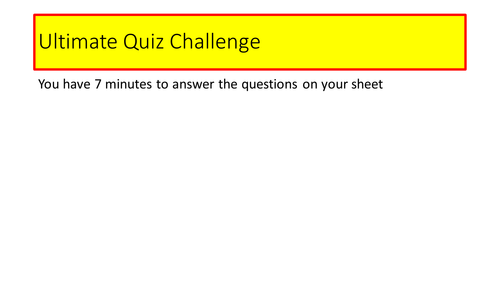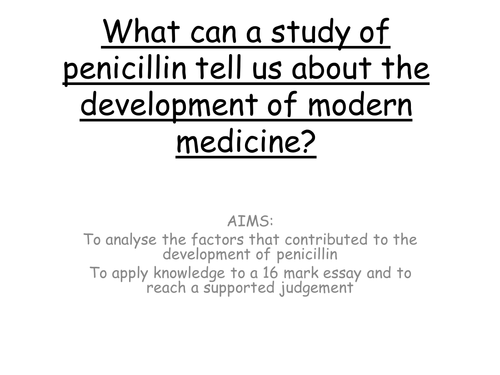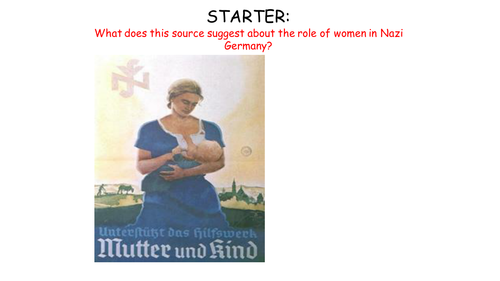
170Uploads
40k+Views
18k+Downloads
All resources

British Empire - Sepoy Rebellion
A KS3 lesson in which students will consider the causes, events and consequences of the Sepoy rebellion. Students will categorise the causes in to long and short term causes and the trigger.

Industrial Revolution: Victorian towns
A KS3 lesson in which students investigate why the death rate was so high in Victorian towns. Students will consider who is to blame by categorising factors which contributed to the death rate, and reaching a judgment about what could be done to solve the issue.

Industrial Revolution - Railways
A KS3 lesson in which students examine in the impact of the introduction of railways. Students will categorise consequences into social, economic and political impacts.

How significant was the industrial revolution?
A KS3 lesson on the significance of the industrial revolution. Includes differentiated tasks for lower ability students. Students will use criteria in order to assess the significance.

Industrial Revolution - Did life improve?
A KS3 lesson which summarises the improvements during the Industrial revolution. Includes a living graph, and requires students to categorise and prioritise the changes which occurred. Works best as a summary lesson after completing a unit of work on the topic.

AQA 8145 Medicine - Modern Treatment
A GCSE lesson in which students examine several strands of development of modern medicine to consider the impact on treating diseases. Students will evaluate the extent to which these measures have led to progress in health and life expectancy before reviewing change in understanding causes and cures of diseases over time.

AQA 8145 - Conflict and Tension Cold War: Consequences of the Prague Spring
A GCSE lesson in which students consider the impact of the Prague Spring. Students will consider a 16 mark exam question on the main consequences of the Prague Spring by gathering relevant information to support key consequences before reaching a judgement on the most important consequence.

Making of Modern Britain - youth culture 1950s
An A-level lesson in which students examine the reasons for the development of youth culture in the 1950s. Students will use their understanding to examine three conclusions to focus on exam technique, and consider the strengths and weaknesses with the conclusions. Furthermore, students will link their understanding of youth culture to other social changes to analyse the moral panic and reactions to the development of youth culture.

What was Tudor England like?
A KS3 introductory lesson to the topic of the Tudors. Students will gain an introduction to key themes and a sense of period as they understand life in Tudor England.

Russia's problems 1894 (OCR A-level)
An introduction to OCR Unit 2, Russia 1894-1941. Students will understand and analyse the key problems that Russia faced in 1894 and consider whether Nicholas II was the right man for the job. Students will develop links between problems to begin to understand the interplay of political, economic and social factors.

Italy and Fascism - Giolitti's Italy
An A level lesson in which students evaluate the extent to which Giolitti succeeded in creating a stable Italy. Students will evaluate both political and economic stability and understand the key features of Giolitti's policies.

AQA 8145 Germany - Opposition to Hitler
A GCSE lesson on the effectiveness of opposition within the Nazi regime. Includes planning for a 12 mark question linked to the AQA specification and so will need to be taught after terror/the Nazi police state.

Italy and Fascism - Matteotti Crisis
An A-level lesson on the Matteotti Crisis. Students will evaluate the extent to which the Matteotti crisis enabled Mussolini to establish a dictatorship. The lesson enables students to plan their answer to an essay question.

AQA 8145 Germany - The Depression
A GCSE lesson on the impact of the Depression. This lesson leads in to why the Nazis gained support, leading to Hitler becoming Chancellor. Students will understand the causes and consequences of the Depression and will analyse the economic and political effects.

AQA 8145 Medicine - Liberal Reforms
A GCSE lesson in which students will understand the reforms introduced by the Liberal government at the start of the 20th century, and understand why they were introduced. Students will also develop their understanding through making links between factors.

AQA 8145 Medicine - Surgery over time
This works best as a summary lesson on the theme of surgery within the Health and the People Unit. Students will categorise evidence leading to progress in surgery before preparing for a 16 mark essay question in line with the new specification.

Civil Rights Movement - Montgomery Bus Boycotts
A lesson in which students consider the significance of the Montgomery Bus Boycotts. Students will sort statements in to the causes, events and consequences before considering who the most important figure in the bus boycotts was.

Civil Rights Movement - Little Rock
A lesson focusing on the events at Little Rock High School and their place in the Civil Rights Movement. Students will gain an understanding of the key events in the crisis.

AQA 8145 Medicine - Introduction of penicillin
A GCSE lesson in which students will gain an understanding of the development of penicillin from its first discovery to its mass production. Students will also categorise the reasons into key factors and reach a judgement on the most important factor in the development of penicillin.

AQA 8145 Nazi Germany - women
A GCSE lesson on Nazi policies towards women. The lesson includes differentiated resources for lower ability students. Students will link polices towards women with Nazi control of the whole population.

